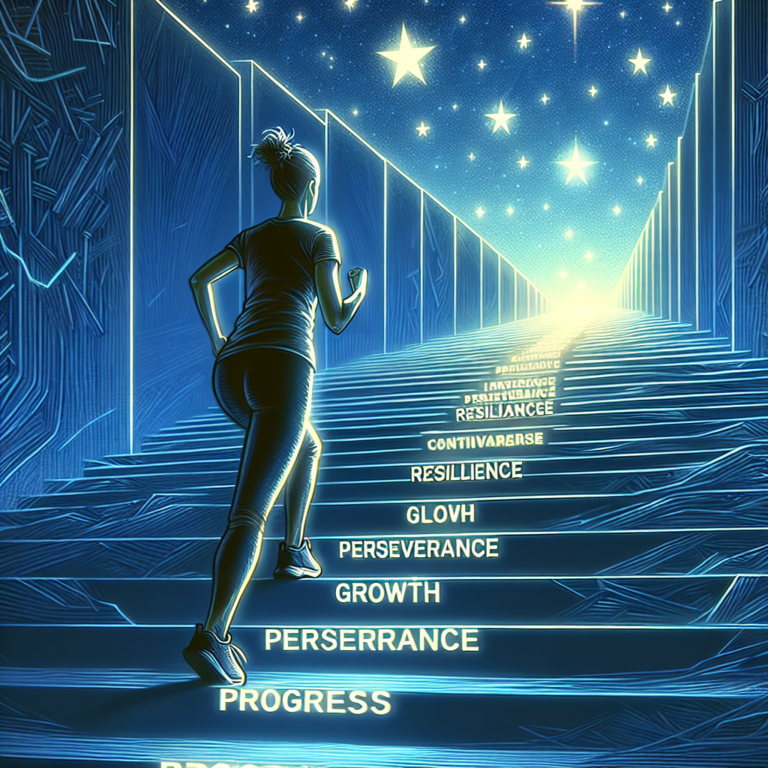
Your First Steps in Meditation: Essential Tips for Beginners
Introduction: Embracing Stillness in a Chaotic World
In today’s fast-paced society, where distractions lurk at every corner and stress levels are soaring, finding peace can seem difficult. Whether you’re struggling with anxiety, looking for a way to enhance your focus, or simply seeking a break from the hustle, meditation has emerged as a beacon of hope. Your First Steps in Meditation: Essential Tips for Beginners can help you ease into this transformative practice. Imagine carving out just a few moments a day to still your mind, reconnect with your breath, and find solace amidst the noise. The ability to effectively meditate is not just a skill; it’s a life-enhancing journey that can bring profound changes to your mental, emotional, and even physical well-being.
Let’s embark on this journey together, exploring essential tips that will make your initial steps into meditation not just easy but joyous and fulfilling.
Understanding Meditation: A Brief Overview
What Is Meditation?
Meditation reflects a variety of techniques aimed at developing mindfulness, concentration, and emotional calmness. It can be as simple as watching your breath or as complex as advanced visualization techniques. Your First Steps in Meditation: Essential Tips for Beginners will help you understand the wide spectrum of meditation styles so you can choose one that resonates with you.
Benefits of Meditation
The benefits of meditation are profound and far-reaching, making it more than a mere trend. Engaging in a consistent meditation practice can lead to:
Reduced Stress: Regular practice can lower the levels of stress hormones in your body.
Enhanced Focus: Improved attention span and cognitive functioning contribute to greater productivity and efficiency in daily tasks.
Emotional Well-being: Meditation fosters a greater sense of emotional resilience, helping you manage overwhelming feelings.
Better Sleep: Many report improved sleep patterns and a reduction in insomnia.
- Physical Health Improvements: Meditation may lower blood pressure and improve overall health.
Laying the Groundwork: Preparing for Meditation
Finding Your Space
Creating a peaceful environment is essential when you’re starting your meditation journey. Consider the following points to set up your space:
- Location: Choose a quiet space free from disturbances.
- Comfort: Use cushions or a chair that allows you to sit comfortably while maintaining an alert posture.
- Ambiance: Dimming the lights or adding soothing music can create a calming atmosphere.
Choosing the Right Time
Your First Steps in Meditation: Essential Tips for Beginners suggests identifying the best time for your practice. Morning meditation can kickstart your day with intention, while evening sessions can aid in winding down.
Different Types of Meditation: Finding Your Fit
With numerous styles of meditation at your disposal, identifying the right practice is vital for success.
Mindfulness Meditation
Mindfulness meditation focuses on being present in the moment. As thoughts arise, acknowledge and release them, returning your focus to your breath. This can be a powerful tool (and is a great place to start) for beginners.
Guided Meditation
For those who appreciate structure, guided meditation is a perfect entry point. Whether a recorded session or a live instructor, guidance can help ease you into meditation.
Transcendental Meditation
This meditation technique uses specific mantras and encourages twice-daily meditation of 10-20 minutes. While it may require more commitment, many find it rewarding.
Sample Meditation Techniques
| Technique | Description | Ideal For |
|---|---|---|
| Mindfulness | Focus on the present through breath | Beginners |
| Guided | Follows verbal instructions | Structured learners |
| Transcendental | Utilizes mantras for deeper engagement | Those looking for depth |
| Loving Kindness | Focuses on compassion for oneself and others | Enhancing emotional well-being |
Your First Steps in Meditation: Essential Tips for Practicing
Start Small
It’s natural to feel overwhelmed when you’re first starting your meditation practice. Your First Steps in Meditation: Essential Tips for Beginners advises starting with just 5-10 minutes a day. Gradually increase this time as you feel more comfortable.
Be Patient with Yourself
Meditation is not about emptying your mind but about acknowledging your thoughts and returning to your breath. Many beginners experience restlessness or boredom; remember, it’s all part of the journey.
Keep a Journal
Consider documenting your experiences. Reflecting on your feelings before and after meditation helps in tracking your progress and insights.
Case Study: Sarah’s Journey into Meditation
Sarah had always struggled with anxiety and found it challenging to switch off at night. After facing numerous sleepless nights, she decided to give meditation a go, remembering recommendations she received in her yoga class—Your First Steps in Meditation: Essential Tips for Beginners guided her.
Sarah started with a 5-minute guided meditation each night, focusing on her breath. Over a month, she gradually extended her practice. Now, she enjoys 20 minutes each evening, and her anxiety levels have significantly decreased—she sleeps better and feels more in control during the day.
Incorporate Mindfulness Daily
Despite the best intentions to meditate, sometimes life gets in the way. To weave mindfulness into your daily life, practice simple techniques—like mindful walking, eating, or even showering. Your First Steps in Meditation: Essential Tips for Beginners encourages you to find the sacred in the mundane.
Overcoming Common Challenges
Distraction
Distractions are common, especially when you start. Acknowledge them, breathe, and gently return focus to your practice.
Mind Wandering
It’s perfectly natural for your mind to wander, especially as a beginner. Rather than getting frustrated, recognize this phenomenon as a training ground for your focus and attention.
Physical Discomfort
If discomfort arises during meditation, assess your posture. Use props like cushions or adjust your seating to find a more comfortable position. Always remember that physical comfort enhances your meditative experience.
Building a Regular Practice
Setting Intentions
Having a purpose can motivate you through mediation. Consciously setting an intention each session can help reinforce your commitment.
Scheduling Sessions
Incorporate meditation into your daily routine. Attach it to an existing habit like morning coffee or evening wind-downs.
Find a Community
Engaging with a meditation group can ward off feelings of isolation and help keep you accountable. Seek out local groups or online communities to share experiences.
Your First Steps in Meditation: Essential Tips for Long-term Success
Continual Learning
Explore different types of meditation and self-help books, workshops, and retreats. Each new resource will deepen your understanding and enrich your practice.
Mindfulness Apps
Many modern applications provide guided practices, timers, and community support. Apps such as Headspace and Calm have become popular for their user-friendly interfaces and engaging content.
Conclusion: Your Journey Begins Today
Your First Steps in Meditation: Essential Tips for Beginners is your personal roadmap to starting a fulfilling meditation practice. Celebrate your journey as you learn, grow, and transform your life through the power of meditation. Every session you commit to helps cultivate an inner sanctuary that shields against daily stressors.
Remember, meditation isn’t just about the moments spent sitting in silence; it’s about nurturing a deeper connection with yourself.
FAQs Section
How long should I meditate as a beginner?
- Starting with 5-10 minutes can be effective. Gradually work your way up as you become more comfortable.
What should I do if I cannot stop my thoughts during meditation?
- Acknowledge the thoughts; it’s part of the process. Gently guide your focus back to your breath.
How can I set a regular meditation schedule?
- Attach meditation to a current daily routine or specific time (e.g., mornings or evenings) to help establish a habit.
Can I use guided meditations?
- Absolutely! Guided meditations provide structure and can be especially helpful in the beginning.
- Is meditation suitable for everyone?
- Yes, it’s accessible to everyone. However, always consult a healthcare professional if you have specific mental health concerns.
In embarking on Your First Steps in Meditation: Essential Tips for Beginners, remember: every small step counts. You’ve begun a wonderful journey toward mindfulness, clarity, and peace. Each session paves the way for deeper awareness and connection—not only with yourself but with the world around you. Happy meditating!

















